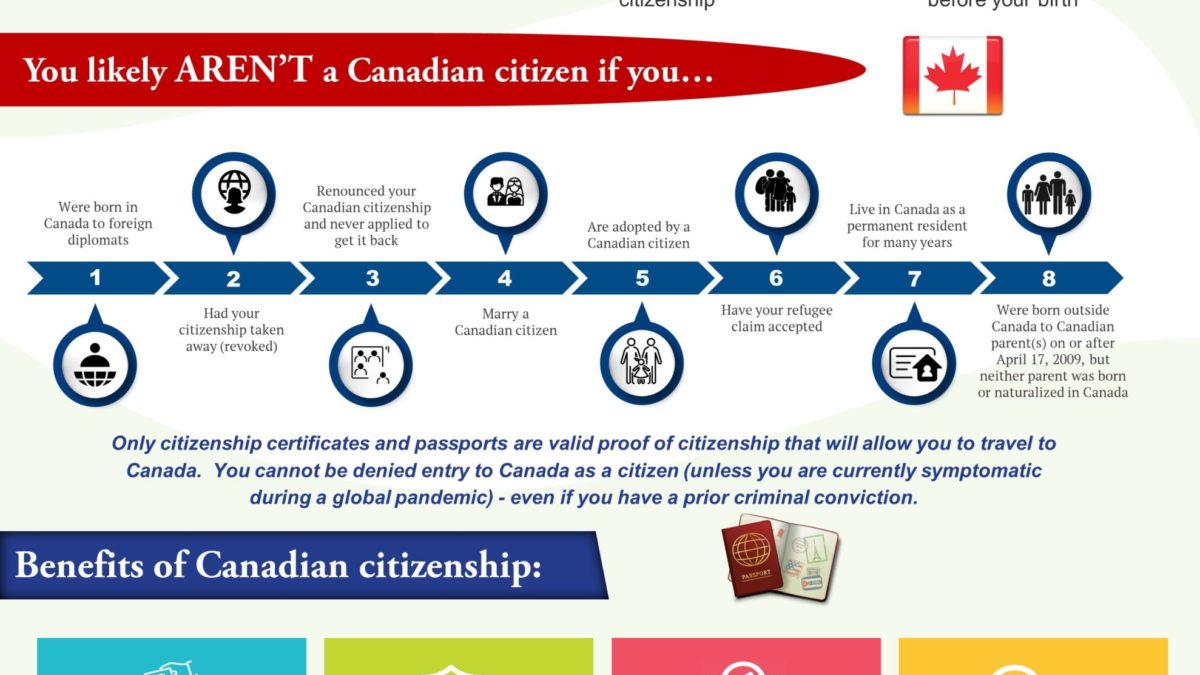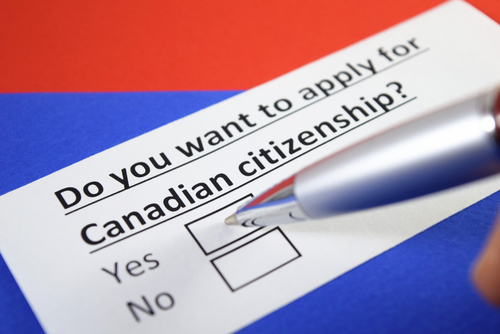How to apply for Canadian citizenship after becoming a permanent resident?
Congratulations on becoming a permanent resident of Canada! Now that you have taken this important step towards building a life in the Great White North, you may be wondering how to take it a step further and become a Canadian citizen. In this article, we will provide you with a straightforward guide on how to apply for Canadian citizenship after becoming a permanent resident. From gathering the necessary documents to submitting your application, we will walk you through the process step-by-step, ensuring that you are well-prepared and confident in your journey towards becoming a Canadian citizen.

Understanding Canadian Citizenship
Canadian citizenship is the legal status granted to individuals who fulfill certain requirements set by the Canadian government. It entitles individuals to various rights and benefits, including the ability to vote, access government programs and services, and obtain a Canadian passport. Canadian citizenship is highly valued, not only for the benefits it provides but also for the sense of belonging and identity it instills in individuals.
Definition of Canadian Citizenship
Canadian citizenship is the status of being a citizen of Canada. It is acquired either by birth or by naturalization. Birthright citizenship is granted to those born in Canada, while naturalized citizenship is obtained by individuals who meet specific criteria and go through the application process.

Benefits of Canadian Citizenship
Being a Canadian citizen offers numerous advantages. First and foremost, citizens have the right to live, work, and study in Canada indefinitely without any immigration restrictions. They can also travel with a Canadian passport, which provides visa-free or visa-on-arrival access to many countries worldwide. Additionally, Canadian citizens can vote in federal, provincial, and municipal elections, and they are eligible for certain government benefits and programs, including healthcare and social assistance.
Eligibility Criteria for Canadian Citizenship
To be eligible for Canadian citizenship, there are several criteria that must be met. These include being a permanent resident of Canada, meeting the residency requirements, fulfilling age requirements, demonstrating language proficiency, possessing knowledge of Canada, and avoiding engagement in prohibited criminal activities.
Being a permanent resident of Canada
Before applying for Canadian citizenship, individuals must first become permanent residents of Canada. Permanent residency is typically achieved through family sponsorship, employment, or humanitarian grounds.
Meeting the residency requirements
To qualify for Canadian citizenship, applicants must have lived in Canada for at least 1,095 days (or three years) within the five years preceding the date of their citizenship application. This requirement ensures that individuals have established a significant connection to Canada and are integrated into Canadian society.
Age requirements
Applicants must be at least 18 years old to apply for Canadian citizenship. Parents or guardians can apply on behalf of their minor children.
Language proficiency
Language proficiency is an essential requirement for Canadian citizenship. Applicants aged 18-54 must demonstrate an adequate level of proficiency in either English or French, Canada’s official languages. This is typically done by taking a language test approved by the government.
Knowledge of Canada
Applicants must also possess knowledge of Canada, including its history, geography, government, and rights and responsibilities of citizens. This knowledge is assessed through a citizenship test.
Prohibited criminal activities
Individuals involved in certain criminal activities are not eligible for Canadian citizenship. Applicants are required to demonstrate good moral character and must not have any outstanding criminal charges or be currently serving a sentence, probation, or parole.

Steps to Apply for Canadian Citizenship
The process of applying for Canadian citizenship involves several steps. These include gathering required documents, completing the application form, submitting the application, and waiting for the processing time.
Gathering required documents
Applicants must gather various documents to support their citizenship application. These documents typically include proof of permanent residence, proof of residency in Canada, valid identification documents, proof of language proficiency, proof of knowledge of Canada, and any additional supporting documents that may be required based on individual circumstances.
Completing the application form
Applicants need to fill out the appropriate application form provided by Immigration, Refugees, and Citizenship Canada (IRCC). It is important to review the instructions carefully and ensure that all information is accurate and complete.
Submitting the application
Once the application form is completed, it should be carefully reviewed to ensure accuracy. The application package, including all required documents, must be submitted to the IRCC along with the applicable fees.
Processing time
After submitting the application, it will be processed by the IRCC. The processing time can vary and may take several months. It is important to be patient during this waiting period.
Gathering Required Documents
To support the citizenship application, a number of documents need to be gathered. These documents serve as evidence of eligibility and help substantiate the information provided in the application.
Proof of permanent residence
Applicants must provide proof of their permanent resident status in Canada. This can typically be done by providing a copy of the Confirmation of Permanent Residence (COPR) document or Permanent Resident Card (PR card).
Proof of residency in Canada
To meet the residency requirement, applicants must provide evidence of their physical presence in Canada. This can be achieved by submitting copies of various documents such as bills, tax returns, employment records, or lease agreements that demonstrate their residence in Canada.
Valid identification documents
Applicants must provide valid identification documents such as a passport, birth certificate, or any government-issued identification card. These documents are crucial in verifying identity and establishing eligibility for Canadian citizenship.
Proof of language proficiency
Language proficiency must be demonstrated by taking an approved language test and submitting the test results as part of the application. The results should indicate the applicant’s proficiency level in either English or French, depending on their language choice.
Proof of knowledge of Canada
Applicants are required to demonstrate their knowledge of Canada by taking the citizenship test. The results of the test will serve as proof of their knowledge and understanding of Canada’s history, geography, government, and rights and responsibilities of citizens.
Additional supporting documents
Depending on individual circumstances, additional supporting documents may be required. These could include marriage certificates, divorce decrees, adoption documents, or any other documents that are relevant to the individual’s citizenship application.

Completing the Application Form
Completing the application form is a crucial step in the Canadian citizenship application process. It is important to follow the instructions provided by the IRCC and fill out the form accurately and completely.
Choosing the right application form
There are different application forms depending on the eligibility category, age, and individual circumstances. It is essential to choose the correct application form to ensure that all necessary information is provided and that the application is processed efficiently.
Filling in personal information
The application form requires applicants to provide their personal information, including their full name, date of birth, gender, marital status, and contact details. It is important to ensure that this information is accurate and matches the supporting documents.
Answering residency and travel questions
Applicants will be asked questions regarding their previous travel history, residency, and time spent outside of Canada. It is crucial to accurately provide this information to meet the residency requirement and comply with the rules regarding absences from Canada.
Providing details about criminal history
Applicants must disclose any criminal history, including convictions, charges, or outstanding warrants. It is important to provide complete and honest information to ensure that the application is processed appropriately. Failure to disclose relevant information can have serious consequences for the application.
Submitting the Application
Once the application form is completed, it is essential to review it carefully to ensure that all information is accurate and complete. After reviewing, the application can be submitted to the IRCC, along with the applicable fees.
Reviewing the application
Before submitting the application, it is crucial to review all sections and double-check for any errors or missing information. This helps to minimize the chances of delays or rejection due to incomplete or inaccurate information.
Paying the application fee
Applicants are required to pay the application fee, which is subject to change and should be verified at the time of application. The fee can usually be paid online through various payment methods accepted by the IRCC.
Submitting the application package
The completed application form, along with all the required documents, should be compiled into an application package. This package can be submitted either online or by mail to the appropriate IRCC office, as indicated in the instructions.
Acknowledgment of application receipt
Once the application package has been submitted, the IRCC will send an acknowledgment of receipt. This notification confirms that the application has been received and is being processed. It may also provide an estimate of the processing time.

Language Proficiency and Knowledge of Canada Tests
To become a Canadian citizen, applicants are required to demonstrate proficiency in one of the official languages (English or French) and possess knowledge of Canada.
Taking the language proficiency test
Applicants aged 18-54 must take an approved language test to assess their proficiency in listening, speaking, reading, and writing. The test results determine the applicant’s language level, which must meet the minimum requirements set by the IRCC.
Preparing for the citizenship test
The citizenship test is designed to evaluate applicants’ knowledge and understanding of Canada. It covers various topics, such as Canadian history, geography, government, and the rights and responsibilities of citizens. To prepare for the test, applicants can study the official study guide provided by the IRCC.
Taking the citizenship test
The citizenship test is typically conducted in-person at a designated testing location. The format may vary, but it generally consists of multiple-choice questions about Canada. Applicants must achieve a passing score to move forward in the citizenship application process.
Citizenship Interview and Background Check
After passing the language proficiency test and citizenship test, applicants will be invited to attend a citizenship interview and undergo a background check.
Preparing for the citizenship interview
The citizenship interview is an opportunity for immigration officials to verify the information provided in the application and assess the applicant’s eligibility for Canadian citizenship. It is essential to prepare by reviewing the application and supporting documents to ensure accuracy and familiarity with the information provided.
Attending the citizenship interview
During the citizenship interview, applicants will be asked questions related to their application and supporting documents. The purpose is to gather additional information and ensure that all requirements have been met. It is important to arrive on time, bring all required documents, and answer questions truthfully.
Undergoing the background check
As part of the citizenship application process, applicants undergo a thorough background check. This includes verifying identity, reviewing criminal records, and checking for any security or fraud concerns. The background check ensures the integrity of the citizenship process and helps maintain the security of Canada.
Citizenship Ceremony
If the application is approved, the final step is to attend a citizenship ceremony.
Receiving an invitation to a citizenship ceremony
Once the application has been approved and all requirements have been met, applicants will receive an invitation to a citizenship ceremony. This invitation will provide details about the date, time, and location of the ceremony.
Preparing for the citizenship ceremony
Before attending the citizenship ceremony, applicants should review the provided instructions and ensure that all necessary documents are prepared. This may include bringing the invitation letter, identification documents, and any other required paperwork.
Taking the Oath of Citizenship
During the citizenship ceremony, applicants take the Oath of Citizenship. This is a solemn declaration that signifies their commitment and loyalty to Canada. The Oath is typically administered by a citizenship judge or a designated official.
Receiving the Certificate of Canadian Citizenship
Upon taking the Oath of Citizenship, applicants are presented with the Certificate of Canadian Citizenship. This certificate is an important document that serves as proof of Canadian citizenship. It should be kept safe and used when applying for a Canadian passport or other official purposes.
Dual Citizenship and Renouncing Previous Citizenship
Canadian citizens are allowed to hold dual citizenship, which means they can maintain citizenship in their home country while also being a citizen of Canada.
Understanding dual citizenship
Dual citizenship refers to the status of an individual who holds citizenship in two different countries. Canada recognizes and allows dual citizenship, meaning that individuals who become Canadian citizens do not have to renounce their previous citizenship.
Checking if your previous country allows dual citizenship
Before pursuing Canadian citizenship, it is important to check the laws and regulations of your previous country of citizenship regarding dual citizenship. While Canada permits dual citizenship, not all countries have the same policy. Some countries may require individuals to renounce their citizenship upon acquiring Canadian citizenship.
Renouncing previous citizenship
If the previous country of citizenship does not allow dual citizenship and requires individuals to renounce their previous citizenship, applicants must follow the necessary procedures to renounce their citizenship before applying for Canadian citizenship. It is important to consult with the authorities of the previous country to understand the procedure and implications of renouncing citizenship.






